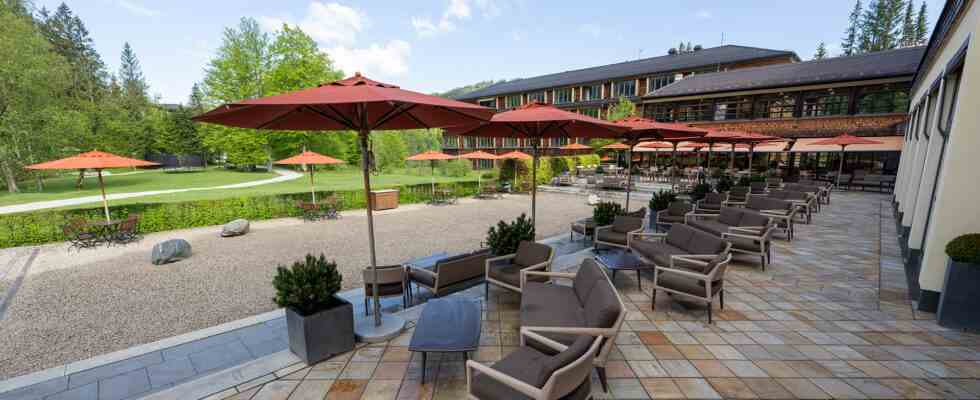Status: 06/19/2022 04:53 a.m
In the pandemic, many workers in the hotel and catering industry have migrated. Now they are missing just before the summer business. Some companies deal with it creatively.
The water from the source of the Danube near Furtwangen in the Black Forest is drinkable – cool and clear, it bubbles out of the rock. If you want to drink something else, you have to be patient on this summer’s day, because the terrace of the nearby hotel restaurant is still closed. Due to lack of staff.
The Kolmenhof in Furtwangen is run as a family business in the third generation. Senior boss Franz Dold took over the hotel and restaurant from his parents 35 years ago. His son Christoph now runs the business. Franz Dold reports that there has always been a shortage of staff in the region. The strong industry in the area has always attracted and withdrawn workers from the catering trade. But he has never experienced a situation like the current one: companies sometimes hire people without applications, the need is so great.
There was actually a solution for the lack of staff in the company: two employees from Romania were recruited. But they are now canceled for family reasons – and that right before the summer season. Now the Dold family has hired two Ukrainians who (still) don’t speak German. The induction goes well, says Franz Dold. Elsewhere in Baden-Württemberg, hoteliers have found what they are looking for in Morocco and are specifically recruiting chefs there.
Black Forest or Lake Constance, the same problems everywhere
Hotels not only have to get creative with their staff, but also with their offerings. The Kolmenhof only opens for restaurant guests in the afternoon and closes earlier in the evening. Before that, only hotel guests can be served. In addition, there are now two rest days. “We used to have a seven-day week and three shifts a day,” says Franz Dold. He definitely doesn’t want to skimp on quality. He would rather reduce the menu or offer simpler dishes.
Horst Müller from the Winzerstube Hagnau on Lake Constance confirms this: “I don’t know anyone who has enough staff,” he says. There are no restrictions on hotel operations, and partial closures cannot be made. Therefore, many restricted the restaurant operations. In restaurants, for example, additional rest days can be implemented, but not in hotels – here guests must be able to book at any time and for as long as they want. This is what many hoteliers on Lake Constance and in the Black Forest report.
Reducing bureaucracy or recruiting abroad?
A problem especially in regions with strong industry: skilled workers are poached. The hotel and restaurant association DEHOGA complains about targeted campaigns, especially in the Corona period. Many employees who were looking for another job during the pandemic, also because of the closures, are no longer coming back. Many companies report this. But working hours are also a problem for some. Many employees pay more attention to balancing their work with family and leisure time.
And even if those interested have no problem with unusual working hours, it may be that they reach their limits: For Roland Birkenmeier, who runs the Löwe country inn in Breisgau near Freiburg, working hours and conditions are too heavily regulated. If his employees have reached their weekly number of hours, then he may have to close earlier – even if it’s a Sunday.
It’s bad for business for him and his colleague Dold in Furtwangen. Both suspect that gastronomy is no longer interesting, especially for young people. And that despite the fact that it is a varied job in which you can get around a lot, as Dold and Birkenmeier think. They want less bureaucracy – and that more is done for dual training.
Don’t even think about retirement
The hotel and restaurant association sees it that way too. DEHOGA General Manager Ingrid Hartges emphasizes how important dual training is. It also brings qualifications that people could later need elsewhere. She also calls for the hiring of skilled workers from non-EU countries to be simplified.
In Furtwangen in the Black Forest, the Dold family has the support of the two Ukrainian employees. But the senior boss and his wife still have to lend a hand – even though they were actually already retired. And now the summer season is upon us. Franz Dold says: “Now it’s really getting started.”

